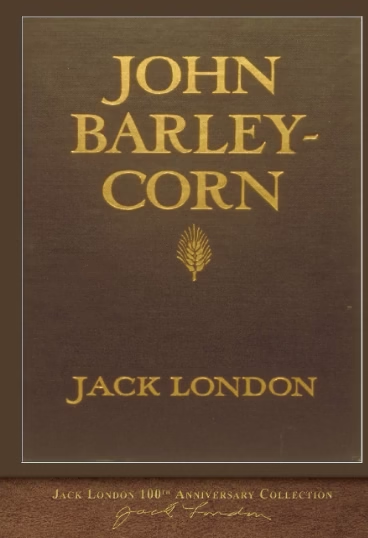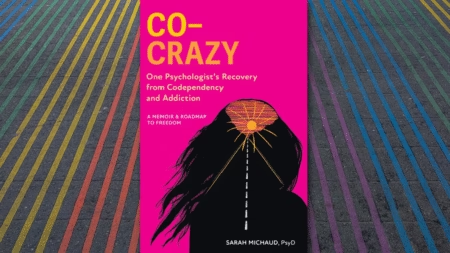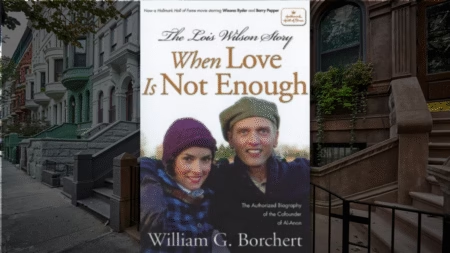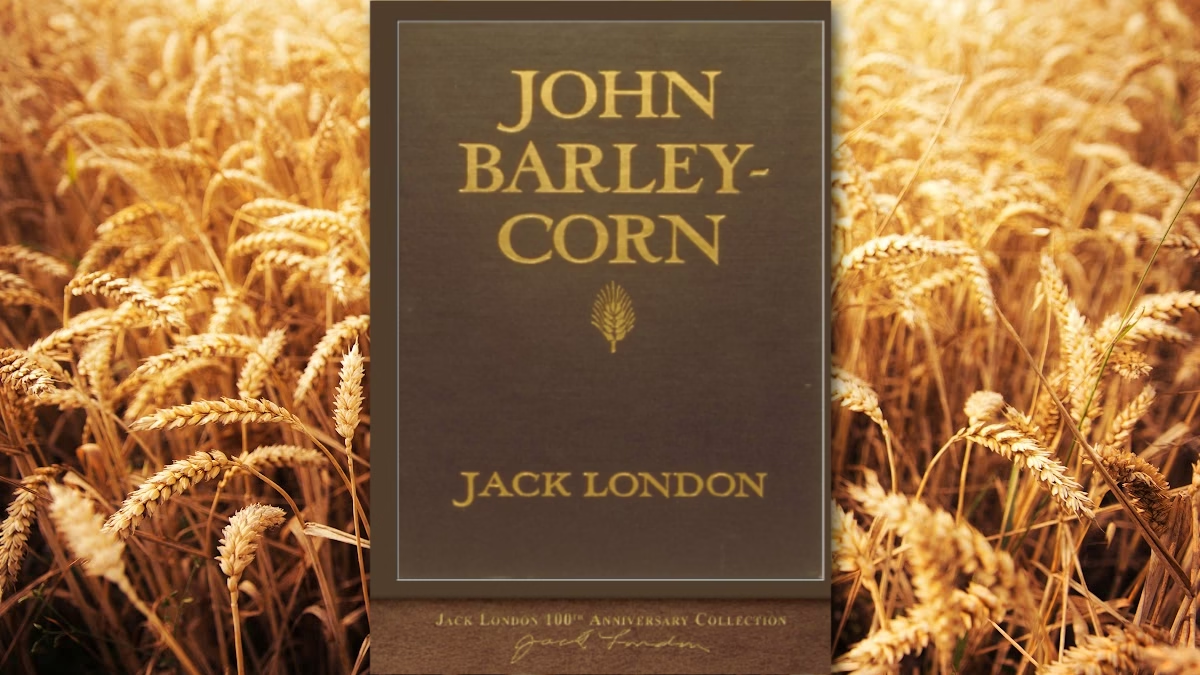
Jack London’s “John Barleycorn” isn’t just another book about drinking — it’s one of the most honest and personal looks at alcoholism ever written. Unlike his adventure stories, such as “The Call of the Wild” or “White Fang,” this book is a confession. London writes about his lifelong relationship with alcohol, personified as “John Barleycorn,” a symbol for booze itself — both a friend and a destroyer.
The book is read like a memoir. London looks back on his life — from a restless teenager working on fishing boats to a famous author — and traces how alcohol followed him through every stage. At first, drinking seems harmless. It’s part of adventure, manhood and social life. London drinks with sailors, miners and writers, using alcohol as a way to belong. He describes those early experiences vividly — the rough laughter, the bar fights, the false courage that liquor brings.
But beneath the surface, London knows something darker is growing. He calls it “John Barleycorn,” giving alcohol a voice and a personality. At times, John seems like a loyal companion — helping him face fear and pain.
But as the years pass, this companion becomes a master. London starts to see how alcohol dulls his joy, twists his thinking and isolates him from life. One of the most striking things about the book is how clearly London can describe both pleasure and poison. He’s not moralizing — he’s remembering.
There’s a part where London explains what he calls “white logic.” This is a cold, empty thinking that comes after too much drinking. He says that after years of drinking, the world starts to lose meaning. A man begins to see life as pointless. That part of the book hits hard because it shows addiction not just as a physical habit, but as something that eats away at the soul.
Another powerful turning point is when he realizes he no longer drinks for fun or out of courage; he must. There’s no party or laughter left. All he hears is John Barleycorn whispering, “One more.” He carries the weight of experience. He’s warning others who might walk the same path.
London’s style is straightforward but deeply reflective. He writes like someone thinking out loud, trying to understand how something so ordinary became deadly. He admits his pride, his curiosity and his blindness along the way. It’s honesty that makes “John Barleycorn” so timeless. You don’t have to be an alcoholic to recognize what he’s talking about — the search for meaning, the struggle against emptiness, the lies we tell ourselves.
By the end, London doesn’t claim victory. He doesn’t say he’s cured. He faces the truth: that alcohol gave him nothing lasting, only illusion. It’s not a story of recovery — it’s a story of realization.
The book was written in 1913, long before AA and the disease concept of alcoholism. He often leans towards prohibition as the answer. He claims that man’s drinking is required to function in society. Not necessarily excess drinking, but a man must drink with colleagues and friends if he is to fit into society. Without these requirements, a man would not be introduced to John Barleycorn and fall under his spell.
The book is a fascinating read on the progression of alcoholism from an early 20th-century perspective. London has a great awareness of what alcohol is doing to him, but does not see a way out of its grasp.
#QUITLIT Sobees Score: 4 out of 5


TSC LIBRARY: Welcome to The Sober Curator Library! We don’t just read books; we immerse ourselves in literary journeys, tune in on Audible, and craft insightful reviews. Our digital shelves are organized into four genres: #QUITLIT, Addiction Fiction, Self-Help, and NA Recipe Books.
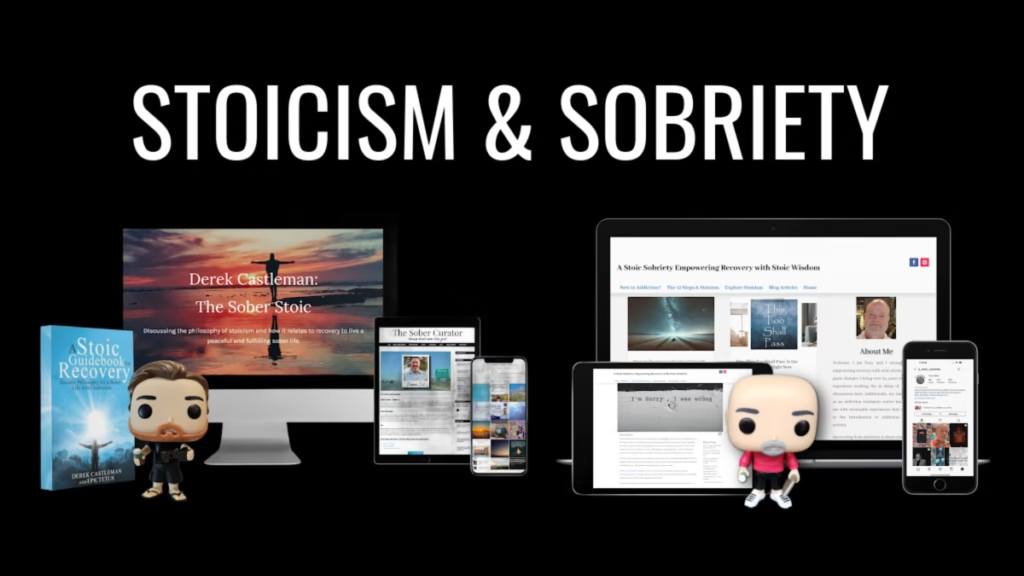
STOICISM: The STOICISM section of The Sober Curator explores how ancient philosophy can serve as a powerful guide in modern recovery. Led by contributors Derek Castleman and Tony Harte, this space explores the principles of Stoicism—reason, virtue, and acceptance—and demonstrates how they can aid in navigating the challenges of sobriety.
Derek, the Sober Stoic, is a writer, educator, scientist, and data analyst, battled addiction and bipolar disorder for over 15 years before finding lasting recovery in 2018. While 12-Step programs gave him a foundation, Stoicism became the key to his sobriety and mental stability.
Tony, Founder of A Stoic Sobriety, with 35 years sober, discovered Stoicism after a lifetime of recovery work and spiritual exploration. A self-proclaimed “spiritual gangster,” he blends ancient philosophy with his lived experience, offering practical and grounded wisdom.
Together, Derek and Tony demonstrate that regardless of where you are on your recovery journey, the timeless wisdom of Stoicism can lead to strength, peace, and purpose.
You’ve got mail from The Sober Curator

Resources Are Available
If you or someone you know is experiencing difficulties surrounding alcoholism, addiction, or mental illness, please reach out and ask for help. People everywhere can and want to help; you just have to know where to look. And continue to look until you find what works for you. Click here for a list of regional and national resources.




